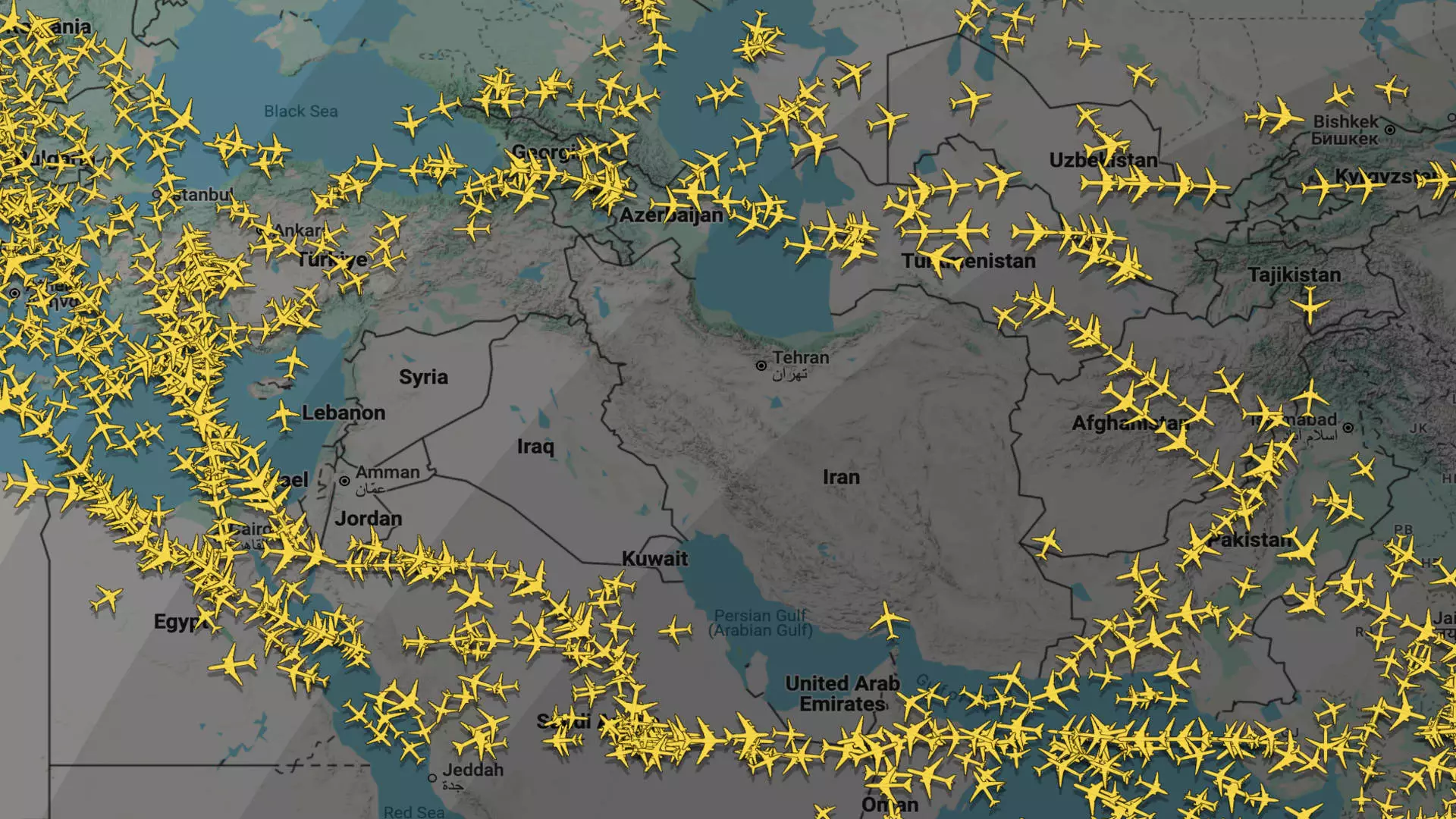The recent announcement from Iran’s military regarding a missile strike on a U.S. military base in Qatar has sent shockwaves through the aviation industry, leading to widespread flight diversions across the Middle East. The situation is a stark reminder of how geopolitical issues can ripple across global travel networks. On Monday alone, more than 20 flights bound for Doha were rerouted, amplifying the sense of urgency and instability in the region. In response to the escalating violence, major airlines are reevaluating their operational strategies, showcasing an unsettling pattern of precautionary measures in a volatile landscape.
Flight Cancellations Beget Uncertainty
Airlines like British Airways echoed a sentiment resonant throughout the aviation sector by canceling Doha flights through the week. Their statement, emphasizing safety as the “highest priority,” reflects a growing concern for passenger welfare amidst rapidly changing geopolitical dynamics. Indeed, the decision to suspend air services isn’t simply about fuel or logistics; it embodies a direct response to an environment where passenger safety cannot be guaranteed.
With other carriers like Air France and Iberia announcing service suspensions to various Middle Eastern destinations, the interconnectedness of global air travel is on full display. Each diverted flight and canceled itinerary emphasizes a shared vulnerability. The broad consensus among airlines is clear: when tensions rise, so does the imperative to protect customers and crew members.
The Ripple Effects of Conflict
This crisis comes at a precarious time, with the lingering impact of the war in Ukraine complicating flight routes even further. The cumulative consequences of these dual conflicts result in elongated flight paths that not only heighten operational costs but also contribute to mounting frustrations among travelers. Longer flights mean increased fuel consumption, escalating ticket prices, and a diminished travel experience overall. It raises queries about the future of air travel in regions rife with instability—how will airlines adapt, and at what cost will safety come?
Furthermore, as airlines navigate these tumultuous waters, it is essential to consider the broader economic ramifications. Each canceled and rerouted flight has a ripple effect on tourism, international business, and local economies reliant on travel. This situation underscores not just the immediate challenges faced by airlines, but also the serious implications for geopolitical stability and economic resilience.
Navigating Uncharted Skies
In an era characterized by rising tensions and military actions impacting aviation, airlines must navigate unknown territories. The return to normalcy in the Middle East may prove challenging, as ongoing conflicts present an obstacle not easily resolved. The current disruptions highlight the need for airlines to adopt more flexible operational strategies that can respond swiftly to geopolitical events while prioritizing the safety and comfort of passengers. Ultimately, as airlines react to these uncertainties, they stand at the crossroads of ensuring safety and adapting to an ever-evolving global landscape.


Leave a Reply